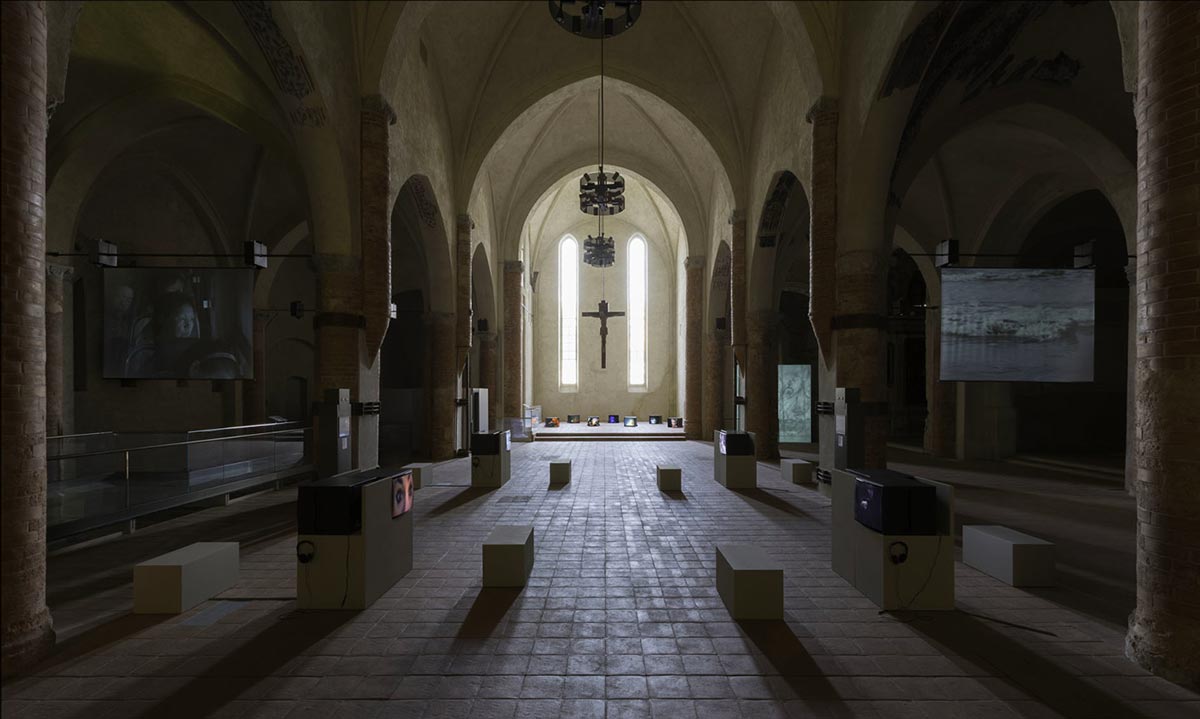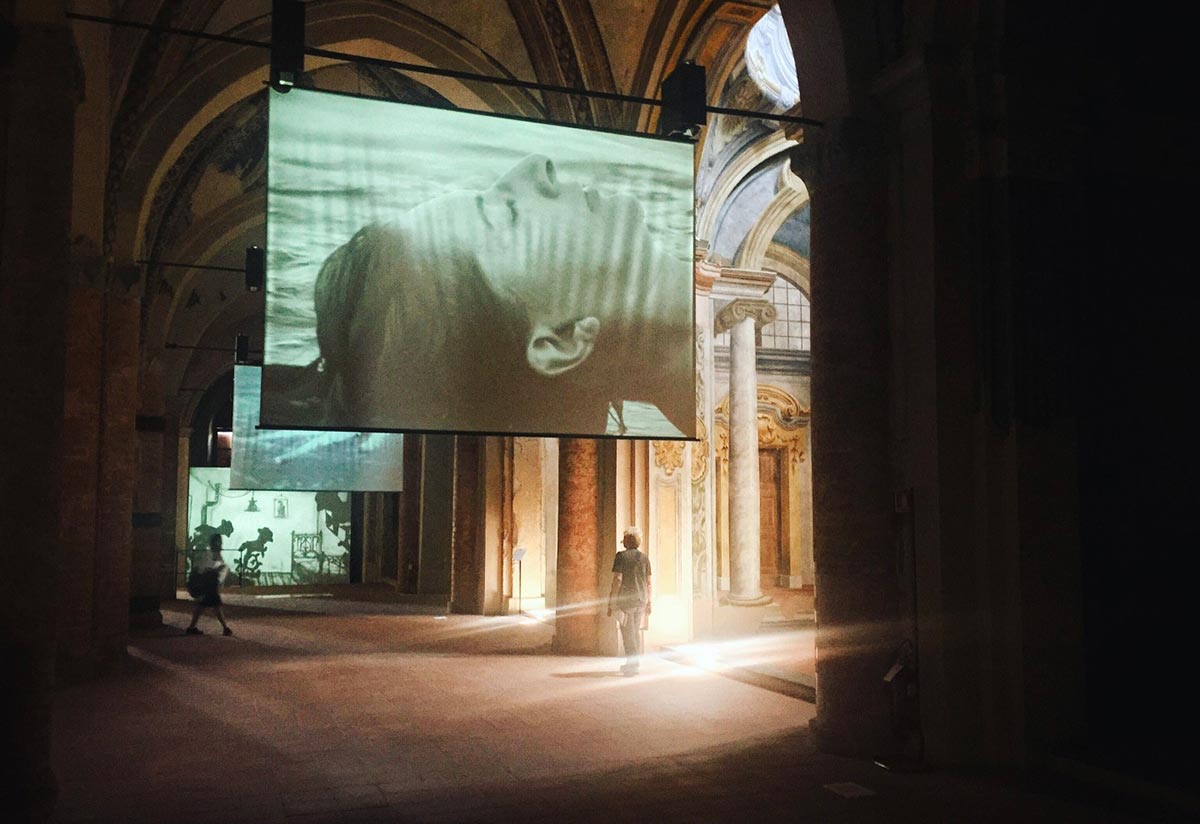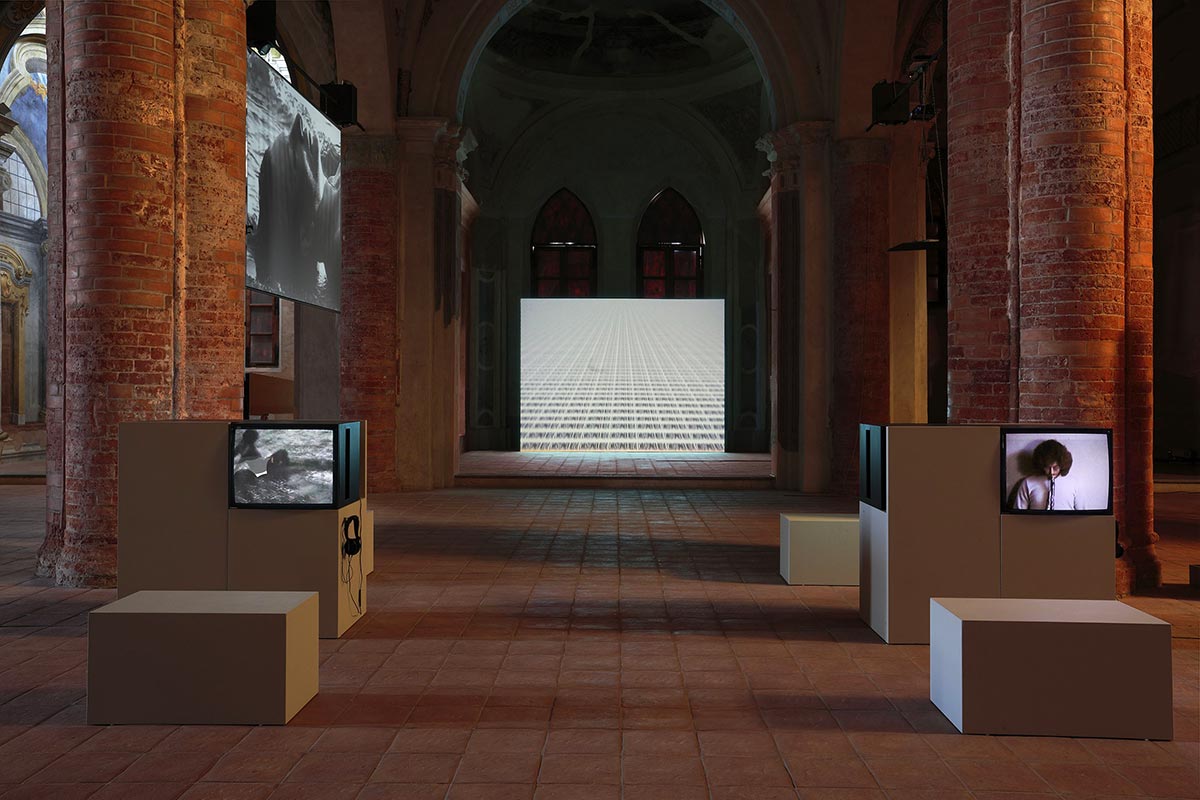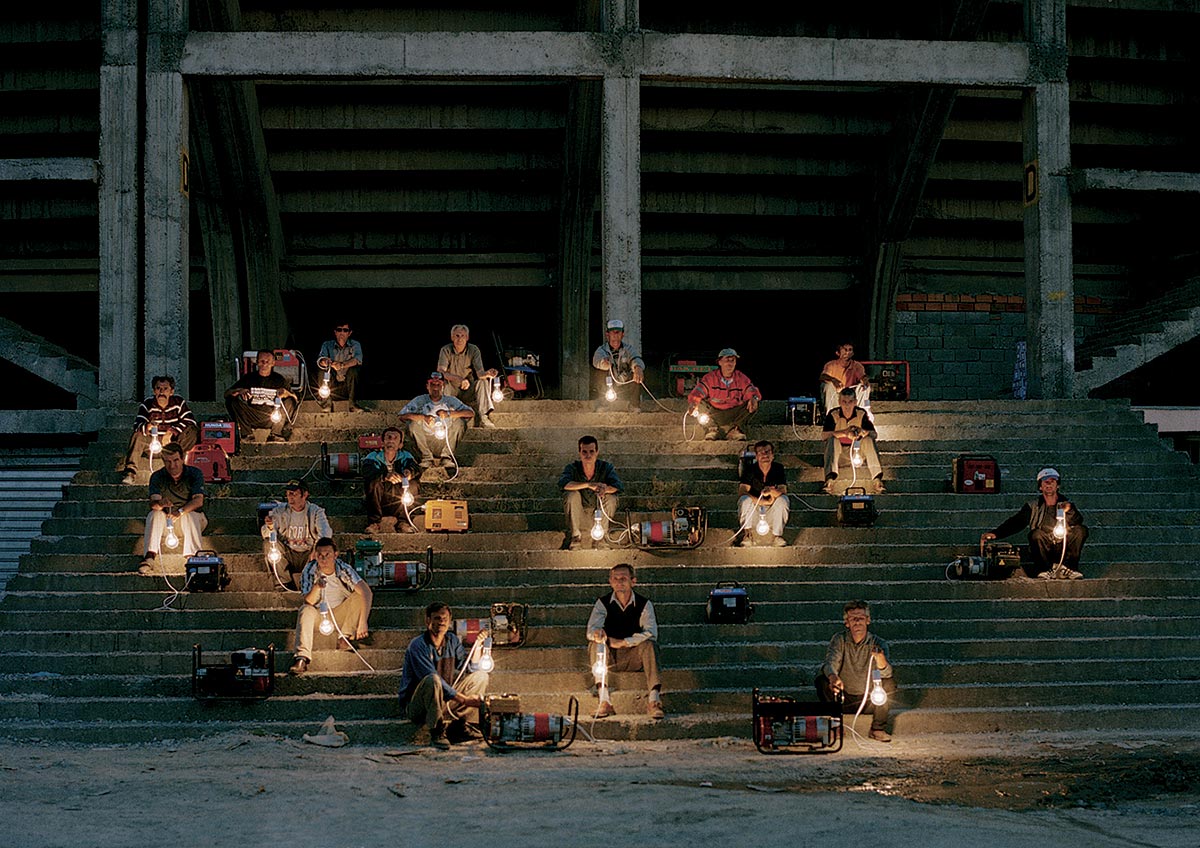Video works from the La Gaia Collection.
What is the most unexpected thing to see in the medieval church? TV? Naked people? Freddie Mercury with Madonna (Luisa Ciccone one)? Marina Abramovic?
Well, you have a chance to see all of it. In Cuneo, a small town located in 3 hour ride by car from Milan, there is the Complesso Monumentale di San Francesco – including the deconsecrated Church built in 15th century. Since 1980 it houses the Museum, that is telling about the history of the city. Now it hosts 30 videos from Italian and international artists, all the works are selections of the Gaia Collection, created by Bruno and Matteo Viglietta in 1970s. The Gaia Collection comprises over 2000 pieces of modern and contemporary art.
The choice of works for “The Moving Tales” illustrates many different ways in which video can be used as a narrative image-based tool. In fact, it can be a good start even for those who are quite skeptical about videos as a contemporary art form (like the author of these lines).
The impression that you get from the contemporary art put in a religious surroundings is shocking – and carrying away. The idea to use the space is fresh and extremely smart. One of the first showpieces is Douglas Gordon’s “Scratch Hither”, so short but meaningful in its inviting tone. And of course the main eye-catcher is Candice Breitz’s “Babel Series” (7 vintage TVs showing looped stage performances of Prince, Grace Jones and other music icons) placed right under the huge rood cross.
At some point you realise that there is this weird feeling – you are trying to move silently and whisper instead of speaking with the normal tone of voice. Either that’s a fact of being in deconsecrated but still church, or the impact of screens, moving faces and looped tales.
Complesso Monumentale di San Francesco
Cuneo, Via Santa Maria 10
From Friday 24 June 2016 to Sunday 28 August 2016
Tel. 0171 634175
Opening times:
Monday: closed
Tuesday – Saturday: 3.30-6.30 pm
Sunday and holidays: 3.30-6.30 pm
Text: Irene Belous
Photo: Maurizio Elia and Matteo Borzone, Irene Belous






